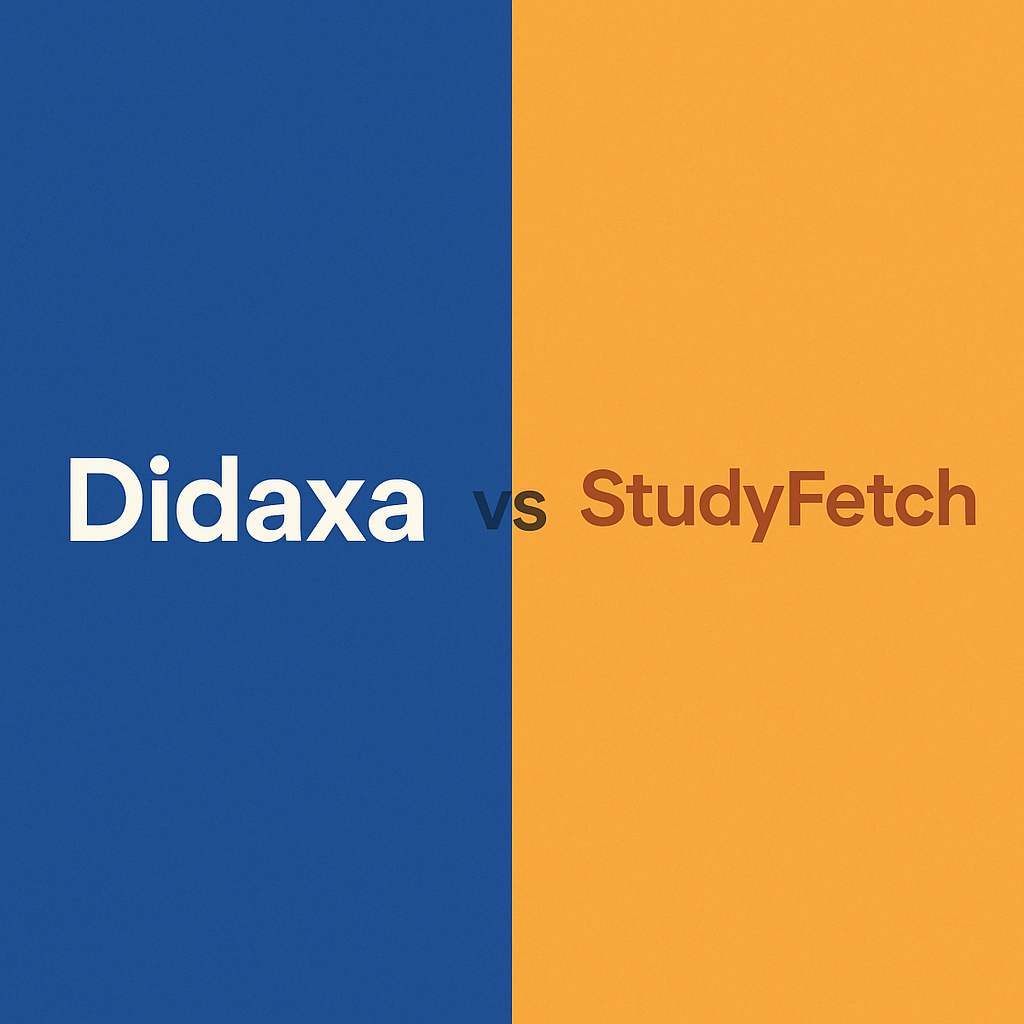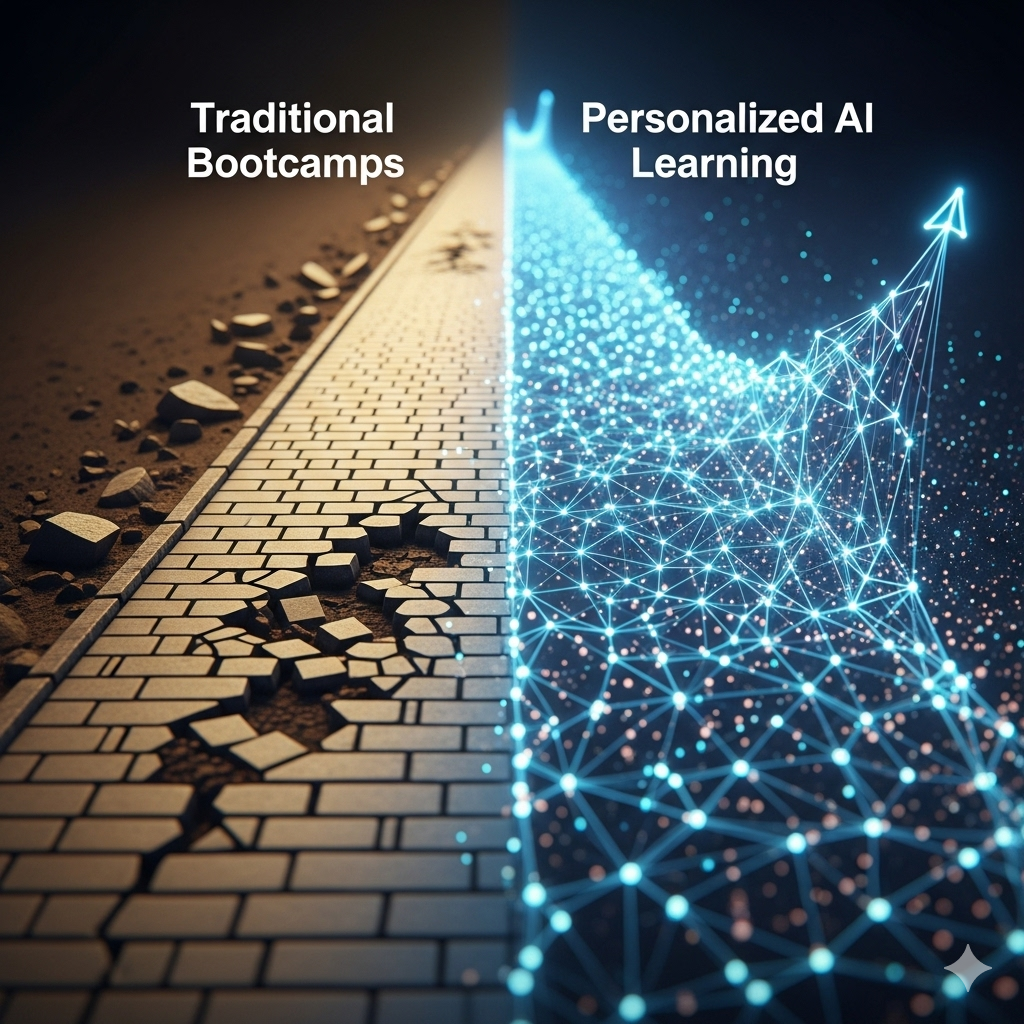Didaxa vs AlgorEducation: Which AI tutoring platform really delivers deeper learning?
Didaxa vs AlgorEducation: Which AI tutoring platform really delivers deeper learning?
Artificial intelligence is reshaping online education in 2025. Among the emerging players, Didaxa and AlgorEducation both position themselves as innovative AI-powered learning platforms. While they share the goal of enhancing learning through technology, their approaches and capabilities differ significantly.
This article presents an independent comparative review based on functional testing and public observations of both platforms. Our analysis examines how each platform performs in real-world learning scenarios.
Disclaimer: The underlying technologies of each platform are not publicly declared. Observations are based on black-box testing and user experience. Technical assessments reflect observed behaviors consistent with known model profiles, not official confirmations from the companies.Learning Experience: Lessons vs Maps
One of the most fundamental differences between the two platforms lies in the nature of the learning content they provide.
AlgorEducation primarily generates concept maps, mind maps, flashcards, and summaries from uploaded materials. These tools are useful for quick overviews and visual organization of information. Users can upload PDFs, images, audio files, or YouTube videos, and the platform transforms them into structured visual resources. This approach works well for learners who need to organize existing knowledge or prepare rapid reviews before exams.
Didaxa takes a different approach entirely. Instead of static visual summaries, the platform generates full, coherent lessons with step-by-step explanations, interactive dialogue, and live reasoning. When you engage with a Didaxa lesson, you're not simply viewing a map of concepts—you're participating in a structured learning experience where an AI tutor guides you through the material, responds to your questions in real-time, and adapts the explanation based on your understanding.
In Didaxa, maps appear during the lesson as visual aids, not as the core content. The emphasis is on building genuine understanding through explanation, practice, and dialogue, rather than organizing pre-existing information into visual formats.
AI Capabilities and Technology
The technology powering each platform reflects distinct architectural philosophies.
Our interaction tests suggest AlgorEducation's tutor is powered by a speed-oriented architecture optimized for rapid content transformation. The platform excels at quick response times and efficient processing, making it ideal for time-sensitive study scenarios.
Important note: Technical details about internal AI models are not officially declared by the company. Observations reflect functional behavior based on our testing.Didaxa, by contrast, employs a multi-agent system that integrates specialized tutors: a lesson agent for structured teaching, a coach for personalized guidance, a summarizer for consolidating knowledge, and other specialized components. This architecture was built by engineers with 15+ years of experience in AI and deep learning research. The system utilizes custom fine-tuned models based on advanced language model technology, optimized specifically for educational contexts.
The multi-agent approach enables Didaxa to maintain context across multiple sessions, provide progressively deeper explanations, and adapt teaching strategies based on learner performance. Rather than treating each interaction as isolated, the system builds a coherent learning path that evolves with the student.
Media & Output Options
The platforms offer distinctly different feature sets:
| Feature | Didaxa | AlgorEducation |
|---|---|---|
| Full interactive lessons | ✅ | ➖ Focus on concept maps |
| Advanced concept mapping tools | Basic | ✅ |
| Exercises during and after lessons | ✅ | ❌ |
| Pre-made learning paths | ✅ Regularly updated | ❌ |
| Pre-made quizzes | ✅ Regularly updated | ✅ Generated from content |
| Podcast generation | ✅ | ❌ |
| Automatic transcriptions | ✅ | ❌ |
| Multi-agent system | ✅ | ❌ |
| Model transparency | Custom multi-agent | Not declared |
| Speech synthesis | ✅ | ✅ |
| Collaborative editing | Limited | ✅ |
| Accessibility features | Integrated | With Italian Dyslexia Association |
Didaxa focuses on depth of individual learning, offering podcast generation, transcription services, and integrated multi-modal learning experiences. Didaxa also provides exercises that can be completed during and after lessons, along with pre-made learning paths and regularly updated quizzes to reinforce learning and track progress.
Depth vs Speed
The philosophical difference between these platforms becomes most apparent in prolonged use.
AlgorEducation optimizes for quick delivery. If you need to rapidly transform lecture notes into flashcards, or generate a concept map from a textbook chapter before an exam, it performs this task efficiently. The platform is designed for users who already have some grasp of the material and need organizational tools or memory aids.
Didaxa, in contrast, optimizes for depth and context understanding. The platform is built for learners who are encountering material for the first time or who need to move from superficial familiarity to genuine mastery. Because Didaxa's multi-agent system retains context across lessons, it supports progressive learning—building on previous sessions, identifying recurring mistakes, and gradually increasing conceptual complexity.
In practical terms: AlgorEducation's architecture is optimized for efficient, focused sessions—ideal for students who need to quickly process specific materials without the overhead of persistent context. This design choice serves its target use case well: rapid content organization rather than extended tutoring sessions. Didaxa maintains a learning trajectory, allowing the AI tutor to reference earlier lessons, track your progress over time, and adjust the teaching approach based on your evolving understanding.
For Whom Each Platform Works Best
AlgorEducation is well-suited for:- • Students needing quick refreshers before exams
- • Visual learners who prefer structured maps over textual explanations
- • Students preparing for standardized tests requiring visual memorization
- • Learners who work best with graphical organization of complex information hierarchies
- • Time-constrained users who want to rapidly organize existing notes
- • Collaborative study groups that benefit from shared, editable concept maps
- • Learners with specific accessibility needs (dyslexia, auditory learning preferences)
- • Professionals seeking to master new technical domains (programming, data science, engineering)
- • Students aiming for deep comprehension, not just recall
- • Learners who benefit from guided, step-by-step explanations
- • Users who want a learning experience that evolves across multiple sessions
- • Anyone who needs to convert learning materials into multiple formats (lessons, podcasts, transcriptions)
Conclusion
Both platforms contribute to the evolution of AI-powered education, but they serve different purposes.
AlgorEducation excels in visual learning and rapid content organization. Its specialized focus on concept mapping has been refined to serve visual learners effectively, offering a streamlined experience for students who think in diagrams and structured hierarchies. The platform provides valuable tools for collaborative study and accessibility, making it an efficient solution for learners who need to structure and visualize information quickly.
Didaxa, however, brings a professional-grade, multi-agent AI architecture capable of creating full lessons, podcasts, and contextual explanations—a closer experience to learning with a human tutor. The platform is designed for learners who want to move beyond summarization and achieve genuine mastery of complex material. With specialized agents handling different aspects of the learning process, Didaxa provides a more comprehensive educational experience that adapts and deepens over time.
If you're looking for quick visual summaries, AlgorEducation is a practical choice. If you're seeking a structured, evolving learning journey with depth and context, Didaxa is built for that purpose.
You can test Didaxa's AI tutors at Didaxa.ai and experience an actual lesson.Written by
Didaxa Team
The Didaxa Team is dedicated to transforming education through AI-powered personalized learning experiences.
Related Articles
Continue your learning journey

Didaxa vs StudyFetch: Which AI tutoring platform fits your learning style?
An analytical comparison between StudyFetch's proven lecture-recording tools and Didaxa's advanced multi-agent AI for deep learning.

Why You Think You're 'Bad at Math' (And How AI is Changing Everything)
Math anxiety affects 93% of adults, but it's not about intelligence. Discover how traditional teaching methods create math phobia and how AI-powered personalized learning is revolutionizing mathematics education with judgment-free, adaptive support.

The Great Skill Reset: Why AI-Powered Upskilling is Making Bootcamps Obsolete
A deep dive into why traditional bootcamps are failing the modern workforce. Discover how AI-powered learning platforms offer a superior, personalized, and cost-effective path to upskilling and career growth in 2025 and beyond.
Experience the Future of Learning
Join thousands of students already learning smarter with Didaxa's AI-powered platform.